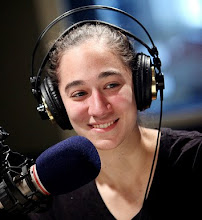I began wondering about this connection at a dinner party on Martha’s Vineyard when the host asked why, during the past decade, so many national political victories and legal reforms -- an employment nondiscrimination act, a hate-crimes bill, repeal of the military ban, marriage or civil unions -- have remained beyond our grasp. A fashion photographer from Texas drawled, “I think it’s because so many of us spend so many hours of so many days online, doing things that make us feel ashamed of ourselves.”
During the 15 years since America Online men-4-men chat rooms introduced mass-market online cruising (earlier Internet cruising technologies, like IRC chat rooms, were mostly for techies), some aspects of our lives have become more visible than ever. We are ubiquitous in mainstream culture; we are out to our families, friends, and employers; we’re able to hold hands in public, in some places, without having to worry that we might get beaten up; and some states and cities now permit gay marriage or civil unions (more will inevitably follow now that California has joined Massachusetts). As this wave of enculturation advanced, AIDS treatments made the ravages of that disease less visible and dispelled the sense of crisis that strengthened our connection to each other in the 1980s. These factors, along with straight gentrification of gay neighborhoods and the growth of the long-tail economy, hastened the decline of many urban gay enclaves, and the demise of many bars, businesses, and social groups that gave structure to gay life.
“The implications of that trend are enormous,” says Jeffrey Klausner of the San Francisco Department of Public Health. “It means that gay men who were once socialized in brick-and-mortar establishments, surrounded by other people, are now being socialized online.” Gay men still go out as well, but our nightlife habits are very different than they were 12 years ago. Jeffrey Parsons, professor of psychology at New York’s Hunter College, says his unpublished research confirms the common sense that “when guys go to bars, they’re going to be with their friends, not to meet new people.”
There is an offline analogue to Manhunt: the LGBT bookshelf in any Barnes and Noble. If you peruse this shelf, you will find that it's composed of at least 80 percent erotica. The nonfiction is also mostly sex-themed. I'd assume the writing probably isn't worse than straight erotica, but the troubling fact is, like Manhunt in the dating scene, this seems to be all there is.
Happily, for books, anyway, there may be a generational shift. There is quality LGBT writing out there, but most of it's in the YA section. Empress of the World, Oranges Are Not the Only Fruit, and especially Nancy Garden's Annie on my Mind. All are well written YA that could stand proudly alongside many other books in the YA canon.
And that's the other part of the problem. Mainstreaming LGBT YA makes it difficult to find, since only the extreme works are in the LGBT aisle. It might be that kids growing up on high quality YA, but not if they think the erotica is all that's out there. Similarly, alternatives to Manhunt may exist, but be so mainstream as to be unremarkable. The best hope is to raise awareness of other paradigms and role models.

No comments:
Post a Comment